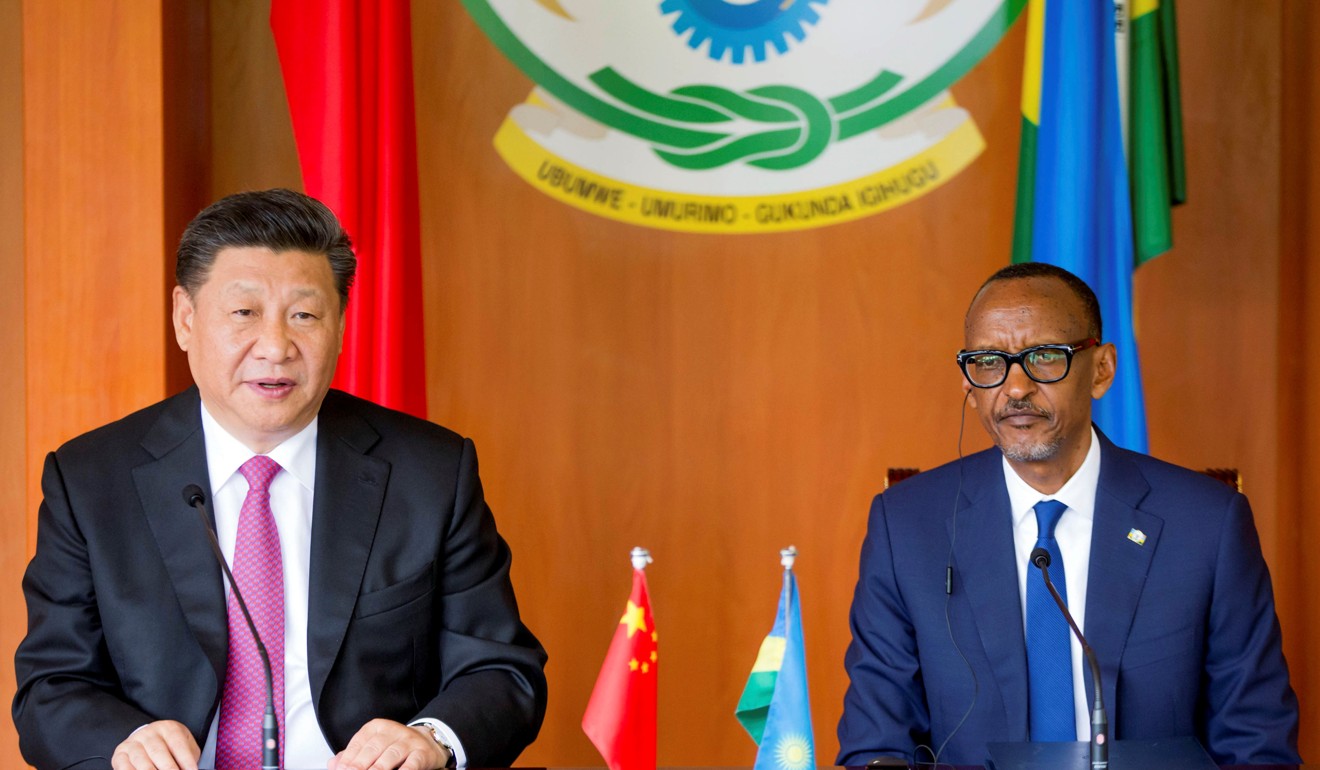
Rwanda joins Alibaba-led electronic world trade platform amid US-China trade war
- Platform provides small and medium enterprises with infrastructure such as cloud computing, mobile payments and logistics to trade electronically
- Alibaba’s move to open up free trade electronically comes amid an escalating US-China trade war, with billions of dollars in tariffs slapped on goods
Rwanda has become the first African nation to join the Alibaba Group Holding-led electronic world trade platform (EWTP) initiative, following similar initiatives in Southeast Asia as the Chinese e-commerce firm seeks to expand digital trade globally.
Jack Ma, the executive chairman of Alibaba, and Rwandan President Paul Kagame on Wednesday signed agreements to bring the country on board the digital trading platform, which will provide small and medium enterprises with infrastructure such as cloud computing, mobile payments and logistics to trade electronically and sell their products outside Rwanda.
As part of the agreements, Alibaba has also pledged to help small and medium-sized enterprises in Rwanda sell their products, such as coffee beans, on its online marketplaces.
“I am delighted that Rwanda is the first EWTP partner in Africa, and I look forward to the development of an innovative digital economy here,” said Ma, praising Rwanda’s ability to embrace change.
“Entrepreneurs in Rwanda, and elsewhere in Africa, are ready to seize the opportunities offered by the digital economy. It is up to all of us to help them succeed.”

The EWTP platform was conceived by Ma as an electronic Silk Road to connect every country and give businesses the ability to sell anywhere in the world. The benefits of using EWTP hubs include speedy customs clearance, logistics support and minimal tariffs.
The first such hub was set up by Alibaba in its home base of Hangzhou, while Malaysia’s capital Kuala Lumpur became the first city outside China to become part of the initiative. In co-operation with the Malaysian government, Alibaba announced plans for a centralised warehousing, customs clearance and logistics facility in March 2017. The Malaysian hub is expected to be completed by the end of 2019.
Elsewhere, Alibaba also announced plans for a digital free-trade zone in Thailand in April, where it has pledged to invest US$320 million in Thailand’s upcoming eastern economic corridor. The Thailand hub, also expected to be completed in 2019, is aimed at facilitating agricultural exports from Thailand to China.
Alibaba’s move to open up free trade electronically comes amid an escalating US-China trade war, with both countries slapping the other with billions of dollars in tariffs. Setting up such hubs would benefit businesses using the EWTP both in China and around the world, by reducing barriers to trade and offering Chinese companies more global trading opportunities.
At an annual investor event in September, Ma said that the US-China trade war could last 20 years and urged China to open its market.
New York-listed Alibaba is the parent company of the South China Morning Post.

